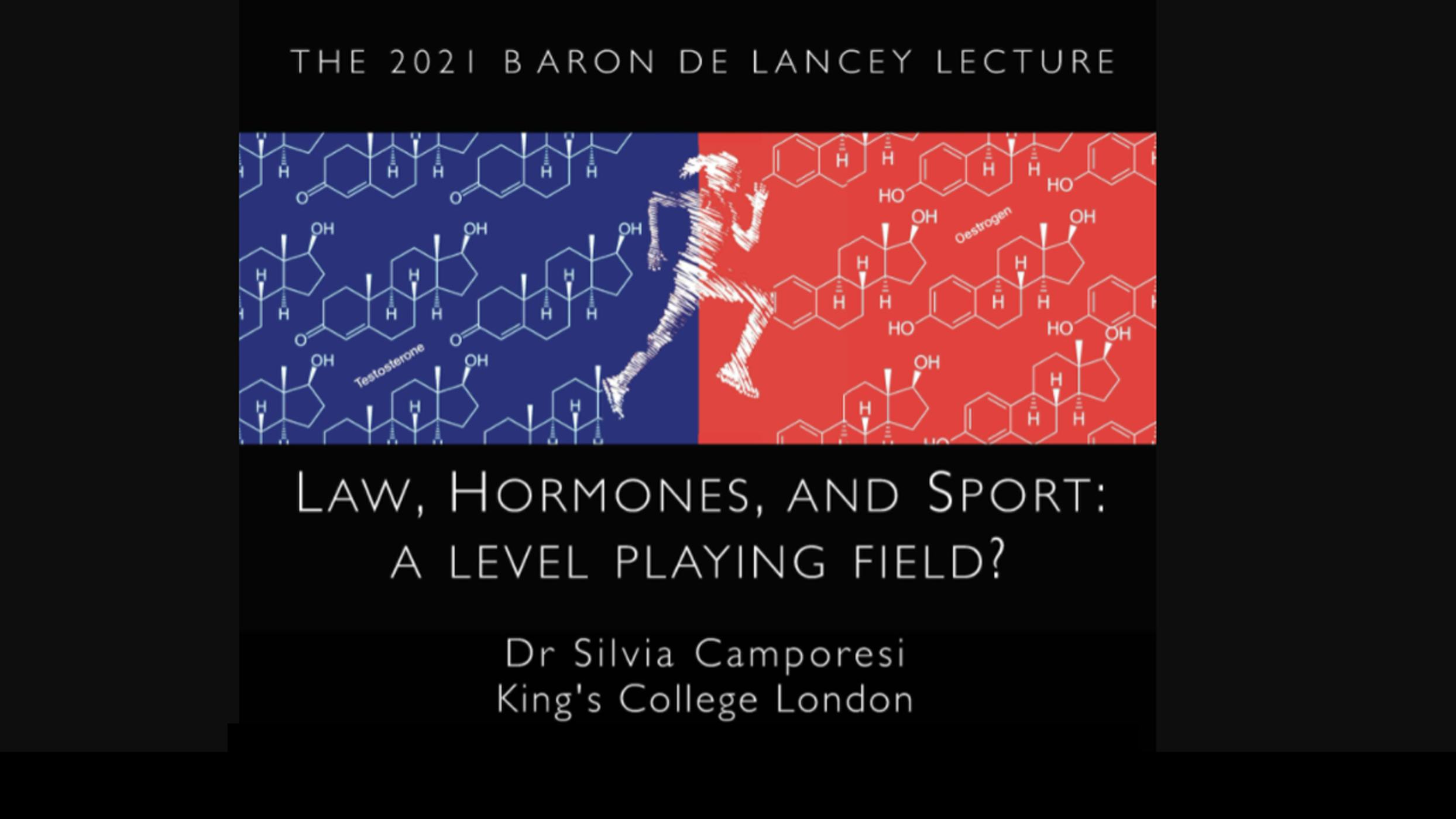
'Law, Hormones, and Sport: a level playing field?': The Baron Ver Heyden de Lancey Lecture 2021
 2021-05-13
2021-05-13
Download
Right click and do "save link as"
How do we ensure a level playing field in sport given natural variations in human biology? When athletes’ biological levels differ from the norm set by their federation for a given sport, what is to be done? For example, is it fair to force female athletes to take testosterone-lowering drugs to be eligible to compete?
In 2018, the International Association for Athletic Federations (IAAF) enacted regulations that prevent female athletes with naturally high levels of testosterone from competing in some athletics events. The validity of these regulations was challenged by South African Olympian Caster Semenya and Athletics South Africa, however the Court of Arbitration for Sport upheld the rules in 2019. As a result, athletes like Semenya need to take testosterone lowering medication in order to compete.
These decisions by the IAAF and the Court were highly controversial. The World Medical Association, for example, demanded the immediate withdrawal of the regulations, arguing that they discriminate based on the genetic variation of female athletes and that it violates the principles of medical ethics for physicians to prescribe a potentially harmful treatment if the purpose is not therapeutic.
On 25 February 2021, Semenya announced that she was taking her case to the European Court of Human Rights.
Is it justifiable for the IAAF to require that an athlete take testosterone-lowering drugs to alter a natural trait that does not pose a medical problem? In what ways, if any, can high testosterone be considered different from other genetically-based traits that provide a performance advantage in sport, but that are not considered unfair and subject to regulation?
Dr Silvia Camporesi will explore these and related questions about the law and ethics of regulating and determining fairness in sport.
About the Speaker:
Dr Silvia Camporesi is a tenured Senior Lecturer in the Department of Global Health & Social Medicine at King's College London, where she is the Director of the MSc in Bioethics & Society. In her research, Silvia merges her personal interest in track and field (she is a former middle-distance runner) with her professional interests in ethics and sport. Silvia has worked on the eligibility of female athletes with hyperandrogenism to compete in the female category since 2009, and was appointed to the World Anti-Doping Agency's Ethics Advisory Group in January 2021.
view more
More Episodes
01234568910111213141516171819
Create your
podcast in
minutes
- Full-featured podcast site
- Unlimited storage and bandwidth
- Comprehensive podcast stats
- Distribute to Apple Podcasts, Spotify, and more
- Make money with your podcast
It is Free
- Privacy Policy
- Cookie Policy
- Terms of Use
- Consent Preferences
- Copyright © 2015-2024 Podbean.com






